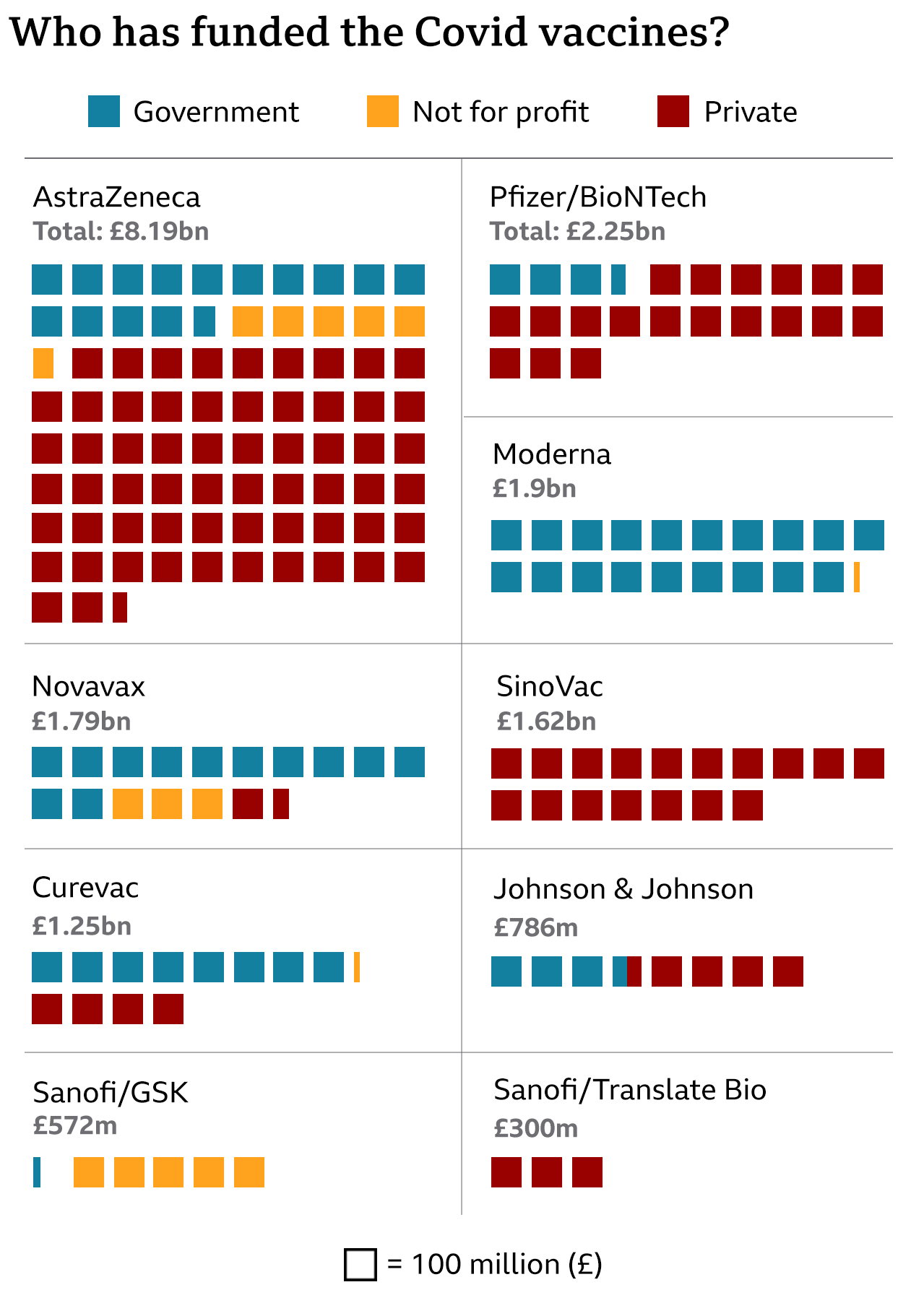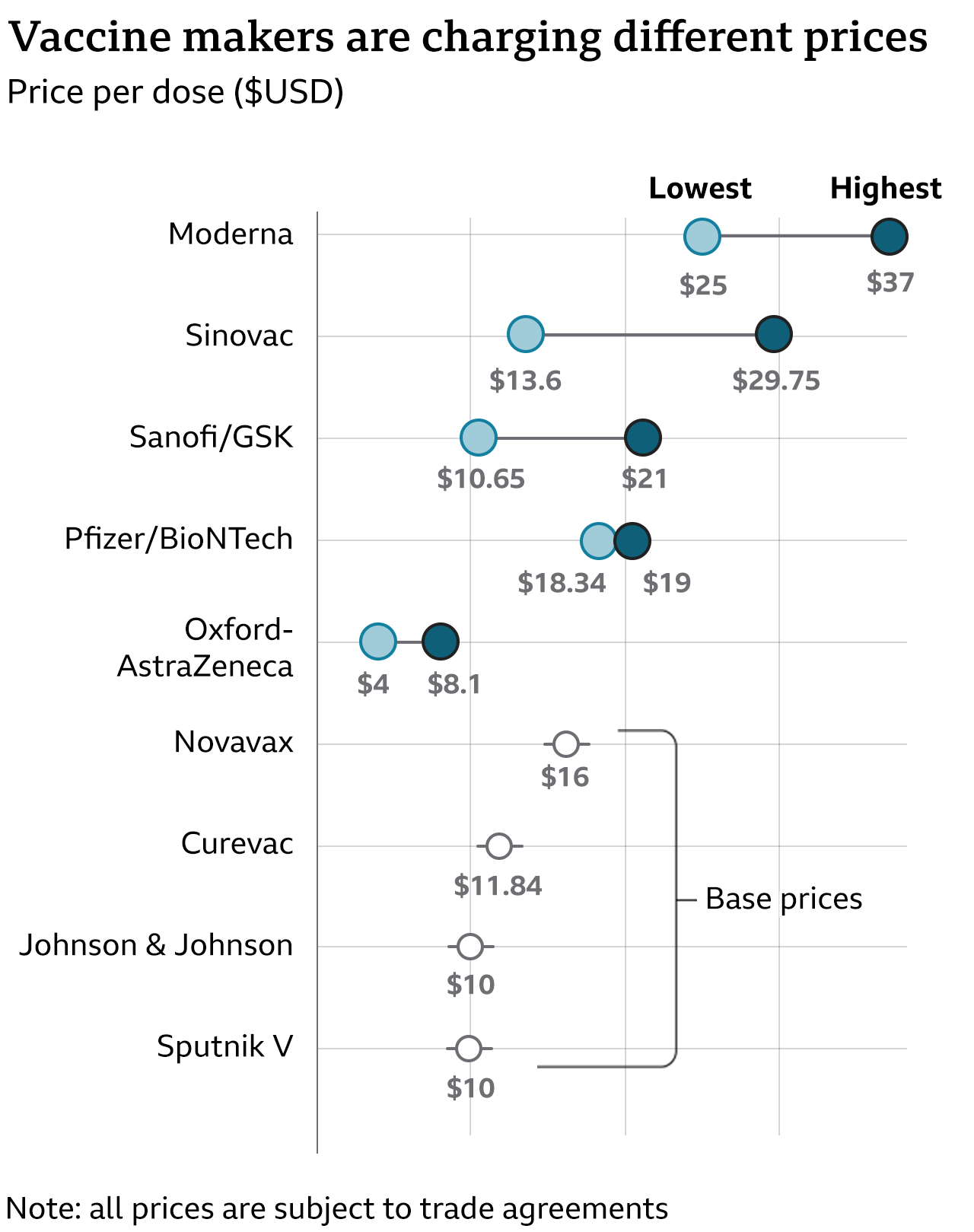Once the pandemic started, we were warned that a vaccine would be possible only after a year or two’s time. Now, ten months later, the vaccines for COVID-19 are starting to come in and the companies behind the top contenders are looking at some significant profits. As a result, investment analysts predict that at least two of the leading companies, US biotech-company Moderna and Germany’s BioNTech and their US partner Pfizer, are expected to rope in billions of dollars in coming months.
But it is unclear to what extent vaccine manufacturers can profit from it in the future. While the funding of these vaccines and the number of companies has been enormous, any opportunity to make big profits could be short-lived, especially when it comes to profiting off a pandemic.
Who Put the Money In for a COVID Vaccine?
Due to the urgency of the situation, governments and donors invested billions in projects to build and test the vaccines. Charities such as the Bill and Melinda Gates Foundation have supported the research and individuals such as Alibaba founder Jack Ma, and country musician Dolly Parton, to name a few, have done the same. In total, governments have invested $8.96 billion, according to research firm Airfinity, while NGOs have raised about $2.06 billion.

Key COVID Vaccine Players Worldwide
AstraZeneca is a British-Swedish multinational biopharmaceutical company. It has a portfolio of products for major diseases such as cancer, respiratory infections, etc. and is a critical player in the COVID-19 vaccine race.
Pfizer/BioNTech- Pfizer Inc. is an American multinational pharmaceutical company. It is one of the largest pharmaceutical companies globally, ranked 64th on the Fortune 500 list of the largest companies in America in 2020 with total sales of $47.644 billion. BioNTech was founded in 2008 as a research company for cancer treatment.
Novavax, Inc. is an American vaccine development company based in Gaithersburg, Maryland. It was founded in 1987 to focus primarily on developing experimental vaccines but was not successful until 2021. Since 2020, the phase III clinical trials of adults have been conducted by Novavax for vaccine NVX CoV2373 to prevent COVID-19.
Sinovac Biotech Ltd. is a Chinese biopharmaceutical company dedicated to the research, development, manufacturing of vaccines that can prevent human infectious diseases. The company is headquartered in Beijing, China and was listed on the NASDAQ until 2019. It is a top contender in making a vaccine for COVID-19.
CureVac N.V. is a German biopharmaceutical company based in Tübingen, Germany, which develops messenger RNA (mRNA) based treatments. In January 2021, CureVac announced a clinical development partnership for the COVID-19 vaccine, called CVnCoV, with multinational pharmaceutical company Bayer.
Johnson & Johnson is an American multinational corporation founded in 1886 which develops medical devices, pharmaceuticals and consumer products. The company ranks 37th in the Fortune 500 ranking. In April 2020, it partnered with Catalent to provide full-scale production of the J&J vaccine at Catalent’s Bloomington facility. In July 2020, it pledged to deliver up to 300 million doses of vaccine to the United States, with 100 million upfront and another 200 million option. The deal, worth more than $1 billion, will be funded by the Authority for Advanced Biomedical Research and Development (BARDA) and the US Department of Defense.
‘‘
While the funding of COVID vaccines and the number of companies has been enormous, any opportunity to make big profits could be short-lived, especially when it comes to profiting off a pandemic.

What Are They Charging?
Companies do not want to be seen as benefiting from the global crisis, especially after receiving external funding. US drug giant Johnson & Johnson and British-Swedish company AstraZeneca, which has worked with Oxford University, has pledged to sell the vaccine at a price that will cover its costs. Moderna vaccines are currently available between $25 and $37 per dose and vaccines in India from Bharat Biotech and Oxford-AstraZeneca are $2.3 and $4. Rest of the major players are yet to set their rates for markets and governments worldwide.




